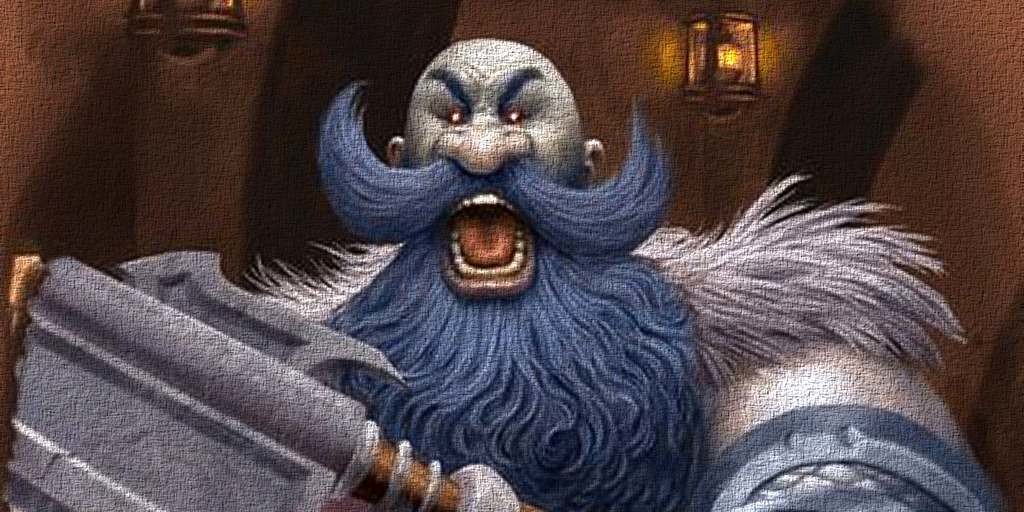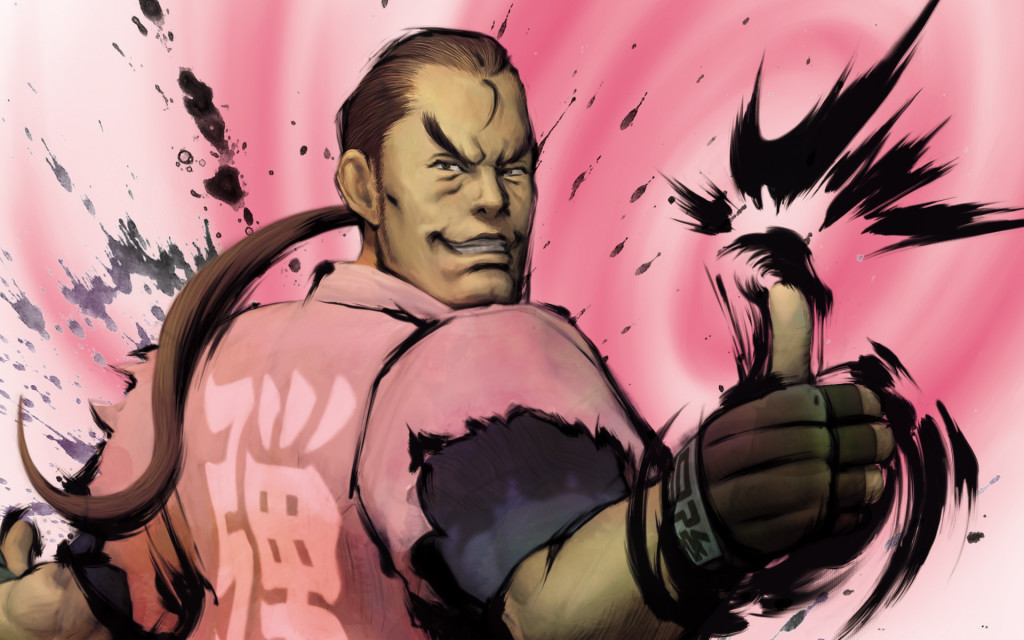Metagame as a Community Exercise
What, then, IS the metagame? Apart from the definition above, a more accurate way to think about the “metagame” is less a solid concept and more a commentary on the various mechanics located within the game. A community forms around most any kind of competitive activity; people who genuinely enjoy it, and play to win, continue to retain knowledge about the game with every round or bout of play. Over time, optimal strategies begin to develop, and the community begins to label certain strategies as simply better than others. To continue with fighting games in particular, Dan ends up in bottom position in Street Fighter for almost every iteration. He’s designed specifically as a joke character that nobody should entertain with dreams of continual wins; he exists for the purpose of fun and enjoyment (some light-hearted ribbing against Ryo Sakazaki never hurt anyone). As such, due to the “joke” nature of his design, he ends up rock bottom on the tier list nearly every single time.
That doesn’t mean Dan can never win a match, but time reveals his utter lack of consistent tools necessary for competitive play. Dan provides an uphill climb and a challenge to beat better characters, which naturally lands him on the bottom tier of nearly every tier list ever made. Remember, though, that a tier list provides an expert, informed commentary based upon the generally accepted principles of the community regarding the ability to win. It is not a hard and fast “rule” like the game rules, but a general commentary on the competitive scene of Game X as it stands now. New technology and ideas could easily shift the tides even beyond the predictions of the most talented players.

I’ll take Grim Patron Warrior from the Hearthstone community. Literally, every expert player considered Grim Patron a “bad card” which would “never see play” and work in “gimmick decks”. Unfortunately, just about everyone immediately became incorrect when the absolutely dominant Warrior deck type came into being to smash both the ranked ladders and every competitive environment. A single card created a viable new archetype for the Warrior class, and single-handedly changed the competitive scene of Hearthstone beyond any possible prediction. In fact, it’s possible that Grim Patron might receive a wholesale nerf, given that it emphasizes a non-interactive play style which often wins entirely from a giant hand of cards (30 health to lethal in one turn isn’t uncommon!).
Neither the designers nor the top players could possibly imagine that this specific set of cards would dominate, but it happened regardless. The metagame, as it were, arises naturally from the optimal abuse of a game’s rules, along with a general understanding of your opponent’s options – Grim Patron succeeds due to its ability to perfectly counter almost every other deck if played optimally. The metagame shifts as opponents figure out how to counter this deck, and while nothing displaced the Grim Patron archetype since Blackrock Mountain, a host of others decks became similarly effective when Grim Patron reached prevalence.
So metagames shift frequently. In all likelihood, the introduction of new optimal techniques takes quite a while. Let’s be honest, you can’t find the optimal strategy in a game at first glance; rather, you are really finding optimal strategy in comparison to other players. That is the whole point of a metagame, after all! It is a strange set of knowledge that affects a game and yet exists outside of it. Think of it as an interpretation of a sort: while, technically, metagames exist to find the optimal strategies via community interaction, most are localized at a particular point in a game’s competitive lifespan. Good characters become bad characters, bad decks become good decks, and all other manner of supposed “foolproof” strategies eventually fall to the might of something completely unexpected. How exciting!
Metagames in Video Games
In that sense, then, a metagame does not actually exist. Yes, I somehow typed more than a thousand words on something that doesn’t exist, but it is the truth to some degree. A metagame seems less like a existent, separate object, and more like an attempt to categorize a set of ideas and thoughts regarding general principles of a game. Given this set of rules, these particular abilities in concert, etc., then you end up with optimal play. Yet, we know a metagame often shifts, and that it also must continually reconfigure itself to fit within a new metagame environment. A game which remains stagnant does not last long; a good game or a bad one usually can prolong it through various methods.
That said, given a different set of circumstances and people playing any particular game, you might imagine a vastly different universe. That goes for games that use the exact same rules and characteristics. What looks like an optimal strategy may lack any sort of viability without just the right set of circumstances to accompany it. This is why I consider it a form of commentary on a game’s rules. People with specific ideas analyze entire sets of ideas based upon a common framework of game rules. They then try to find the best strategies relative to the strategies of an opponent. Sometimes, people disagree entirely about what constitutes “optimal”, perhaps even most of the time. Nothing about a “metagame” ends up written in stone, for the tectonic plates of game design often shift from both a designer level and a community level. Because of those constant shifts, we can never “define” the “metagame”, since it will continue shifting in the future (hence, why I previously mentioned it is localized to a particular point in time).
Think of it like this: the game itself is not the metagame. The metagame, in effect, isn’t the game. Rather, the metagame gives an extended commentary, based on knowledge of the game’s various characteristics, on the way people should play the game. The attitude can often turn sour, however, as people continually play within the metagame of the current era without bothering to experiment themselves. The mentality of a metagame often leads to stifled creativity, or a bunch of whiners complaining that they cannot play their favorite character (take your pick on that one, plenty of MOBAs end up with this problem). A metagame gives us a belief system of a sort that guides the play of many in a specifically competitive environment; whether or not new revelations occur or not often comes down to the further search for new ideas, and such new ideas rock the boat quite hard.


